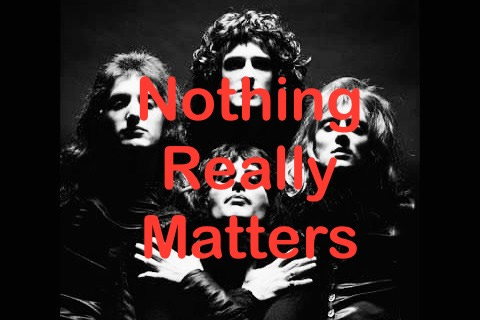Sport matters to me. A lot. Probably to you too, otherwise why else are you reading this? Physical health, mental displacement, tribal identity, emotional immersion, empathy, joy, endorphins. All these gifts and more - including an appreciation of sport’s value to the society I live in. Enough to want our politicians to nurture it. Actually invest in sport, both with cash and collective will, not simply pay it electoral lip service.
A six-week snap election has found all major parties wanting. Candidates yet to be identified across a slew of constituencies. Manifestos in early draft form. Billboards unbooked. The battleground issues are well understood though. The economy (stupid), health service and immigration.
Sport is as likely to trip politicians up as win critical swing votes. The arts too. Hard as leaders in these sectors are scrambling now to have their voices heard, they are unlikely to be able to create debate, let alone shape it to promote their ideas. Expect a few token paragraphs towards the back of each major party’s manifesto. There will be a big wooly, sporty promise or two about getting the nation active, especially the more marginalised groups in society, but nothing that will come back to bite. Or even make a difference.
I published the Sport inc. manifesto at the start of the year. It hasn’t changed:
Vote for Ed Warner, and what would you get? Tax breaks for volunteers who give their time to sport, and simplified paperwork that fits in with their busy lives. Health service ‘credits’ for all to be spent on sporting activity. A levy on broadcast revenue to support clubs lower down big sports’ pyramids. Sport to be carved out of DCMS and given a permanent seat in Cabinet. A bonfire of red tape and bureaucracy, banging together back offices within the funding agencies and between individual sports. But above all else, multi-year investments in school sport - its human capital and physical facilities.
I’ll now add a commitment that the Minister for Sport would stay in post for a whole parliamentary term - barring scandal, arrest or ill health. Stephanie Peacock is Labour’s current Shadow Minister for Sport, Gambling and Media, so presumably a fair bet to step into the real role after the General Election. She’s been two years in the shadow post. Her website cites a London Marathon run in 2019. The sport sector must hope she has a distance runner’s mentality.
There are signs that constrained public finances are cutting into Britain’s sporting infrastructure. UK Sport, the elite funding agency, is in the process of removing 25% of its workforce. We wait to see what areas of its work will be most affected. Are major sporting events at risk? Or will support for Olympians and Paralympians be crimped. Will grassroots agency Sport England be next, whatever the electoral result on 4th July?
I’m all for funding efficiency (see my manifesto above). Lean often means swifter, both on the track and in the office. But after decades of lobbying about the potential benefits of a healthier nation - including lower healthcare cots - we are as far away from genuine acceptance among politicians of all hues as we ever were. Any way the wind blows.
Tricky right winger
Starmer is a Gooner; Sunak a Saint. After the (yawn, cliché) ‘richest game in world football’, the leaders’ teams will now meet again in the Premier League next season. I know which man my money would be on if the two politicians took to the pitch themselves. Check out the Prime Minister on the footballing campaign trail this week here
Fine dining
Labour held a ‘Sports Dinner’ at The Oval the day after the General Election was announced. Obviously booked a while back, it was billed as offering “good opportunities to network across sporting bodies and with politicians” over champagne and petit fours. Ticket prices started at £275. I’d have been interested had politicians been paying me and my peers for our views rather than the other way round. You could have had me for the price of a half-time Bovril.
Arts from their elbow
The Times published this column by me yesterday. Although focused on sponsorship of the arts, there’s a direct read across to sport, so I hope you don’t find its repetition out of place in Sport inc.
“We celebrate and inspire different views, perspectives and points of view” proclaims Hay Festival Global. That’s the same literary festival combine that has just dropped its principal sponsor Baillie Gifford, bowing to anti-fossil fuel and pro-Palestine petitioners objecting to the fund manager’s investments. Hard to know which is more shocking: Hay’s craven capitulation or the naysayers’ cavalier attitude to the financial model behind such jamborees.
I hold no candle for the Edinburgh-based fund management group, although I have a modest investment in one of its funds. I do though share its apparent bemusement at the misunderstanding of the workings of its industry. It has sponsored the Hay Festival since 2016, and a string of other literary festivals besides, and yet only now has it been forced to explain that it manages money for others in a highly regulated industry and that it is clients who set the investment parameters in what Baillie Gifford describes as “subjective ethical situations”.
Key here, surely, is ‘subjective’. Do we believe, for example, Shell when it trumpets its support for energy transition? British Cycling has accepted the oil major as a sponsor through to 2030. The announcement back in 2022 triggered social media outrage and, yes, a petition. ‘Greenwashing’ was the cry, just as ‘artwashing’ is now.
Three weeks after the Shell deal was inked, British Cycling’s chief executive stepped down with immediate effect. Two possibly entirely unrelated events – and the Shell sponsorship remains in place. Both organisations need each other and from my long time in the sports sector I can understand just how important the contract is for the cycling body’s finances. I’ve not always been an admirer of British Cycling, but applaud its refusal to bow to those demanding their black and white view prevails in a nuanced green debate.
The charity that operates the Hay Festival is a £4.5 million income enterprise that generated a £56,756 surplus in 2022, its last reported accounts, leaving it with just under £0.5 million of net assets. The annual value of the Baillie Gifford sponsorship is unclear, but you can be sure it is more than £56,756 – perhaps more even than the charity’s current reserves.
If you were Baillie Gifford, you’d now be asking for this year’s money back, wouldn’t you?
Those writers and artists who withdrew their services because they had woken up to the eight year old sponsorship – or who threatened to do so – can now presumably look forward to a programme of cost-cutting by the Hay executive. First in line? I guess the overseas activities that seek to spread the literary love to the likes of Kenya, Mexico, Columbia and Peru. Perhaps an appearance in Wales in 2025 will now prove less luxurious for those booked to be on stage. Or maybe free events there will be chopped and ticket prices cranked higher.
If Baillie Gifford is deemed an unacceptable corporate partner for a movement dedicated to airing “different views, perspectives and points of view” then that effectively rules out the entire mainstream financial sector. There isn’t a major bank, insurer, wealth manager or investment manager who doesn’t have exposure to fossil fuel or companies doing business in or with Israel. Look beyond finance and most other major sectors prove similarly problematic. Any marketing director taking an arts sponsorship proposition to their board tomorrow is likely to be met with a resounding “why would we risk the aggro?” rebuff.
The Hay Festival audience is four square in Baillie Gifford target territory – hence no doubt the original impetus behind the sponsorship. Whatever their views on the climate and the Israel-Hamas conflict, most ticket-buyers are unlikely to shun the internal combustion engine entirely or stop using Amazon or WhatsApp because their parent companies do business in Israel. Maybe all the signatories to the petition have given these up, but somehow I doubt it.
The nation’s arts, sports, museums and heritage sites won’t be able to function if their stewards bow to noisy activists. We would all be poorer as a result.






Couldn’t find the article in the Times yesterday Ed, but read it here. Completely agree. On the energy side, it’s ridiculous to sanction the major energy companies when we have to support them investing in renewables alongside fossil fuels as part of transition.